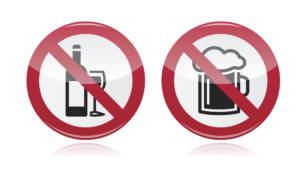A few years ago, England campaigned for a “dry January,” in which citizens completely abstained from all drinking. The practice is relatively new, but there is evidence that Finland implemented a sober January as part of the efforts of World War II. According to Dr. Gregory Taylor, Chief Public Health Officer of Canada, approximately 80 percent of Canadians drink. It’s socially acceptable to drink during social events, work and play, but that doesn’t negate the fact that there are health risks associated with drinking alcohol. In 2015, the Public Health Agency of Canada released a report about the effects of alcohol on society.
Keep in Mind
While it is legal to drink alcohol, Dr. Taylor wants to make certain things clear:
- Alcohol is a mind-altering drug. At least 3.1 million Canadians are at risk for immediate injury when using alcohol, and another 4.4 million are at risk for chronic health problems, such as cancer or cirrhosis.
- How much a person drinks is a key factor in how it affects one’s health.
- Canadians are influenced by social situations, family contexts and advertising when it comes to drinking alcohol.
- Research is changing our understanding of how alcohol affects our bodies.
- Teenagers face a higher risk of negative impacts from using alcohol. It affects their physical, mental and emotional development.
- The use of alcohol is complicated, despite the large amount of information that is available to us.
Drink With Caution
Under the Food and Drugs Act, alcohol is classified as a food. The problem is that it contains psychoactive chemicals that affect the mind and health. Dr. Taylor emphasizes in his report that the majority of Canadians consume alcohol responsibly. It should be noted that there are mixed messages about alcohol’s benefits and harms. Consuming alcohol is not the same as alcohol abuse, but it does contribute to the abuse of alcohol.
In 2008, the leading cause of criminal death in Canada was impaired driving. Although the legal age to drink is 18 or 19, the Public Health Agency found that about 60 percent of teenagers aged 15 to 19 had consumed alcohol in 2013. There are no health benefits to drinking alcohol until a person reaches middle age. Risky behaviors associated with drinking occur more often in teenagers than in any other age group. Drinking can lead to poor memory, lack of coordination, poor academic performance and injuries. It’s also been linked to over 200 medical conditions, including mental health disorders, STDs, hypertension and pancreatitis.
Why Should You Have a Dry January?
A group of employees with “New Scientist” put dry January to the test. Ten people gave up alcohol for five weeks, and four of them kept drinking as they normally did. The 10 who gave up drinking found that their liver fat fell by about 15 percent. Blood glucose levels also fell by an average of 16 percent in those who abstained. Other studies have revealed the same types of effects. However, the point to a sober January is to make a difference in your long-term health. This cannot be maintained if you have wetter February by making up for the time you took off drinking in January.
If you’re considering making some healthy choices in the new year, think about your own sober January. Check the Canada’s Low-Risk Alcohol Drinking Guidelines to determine if the amount of alcohol you’re drinking is putting you at risk. If you need intervention for a drinking problem, contact your physician or the Canadian Centre on Substance Abuse and the College of Family Physicians of Canada for a screening.
If you do drink, be safe and responsible. Limit how much you drink. Never drive if you’ve been drinking. Don’t drink on an empty stomach. Eat a meal or snack before and while drinking. Check with your doctor about any medications you take and how alcohol will affect those medications. It’s okay to drink now and then, when you make good choices about it.



